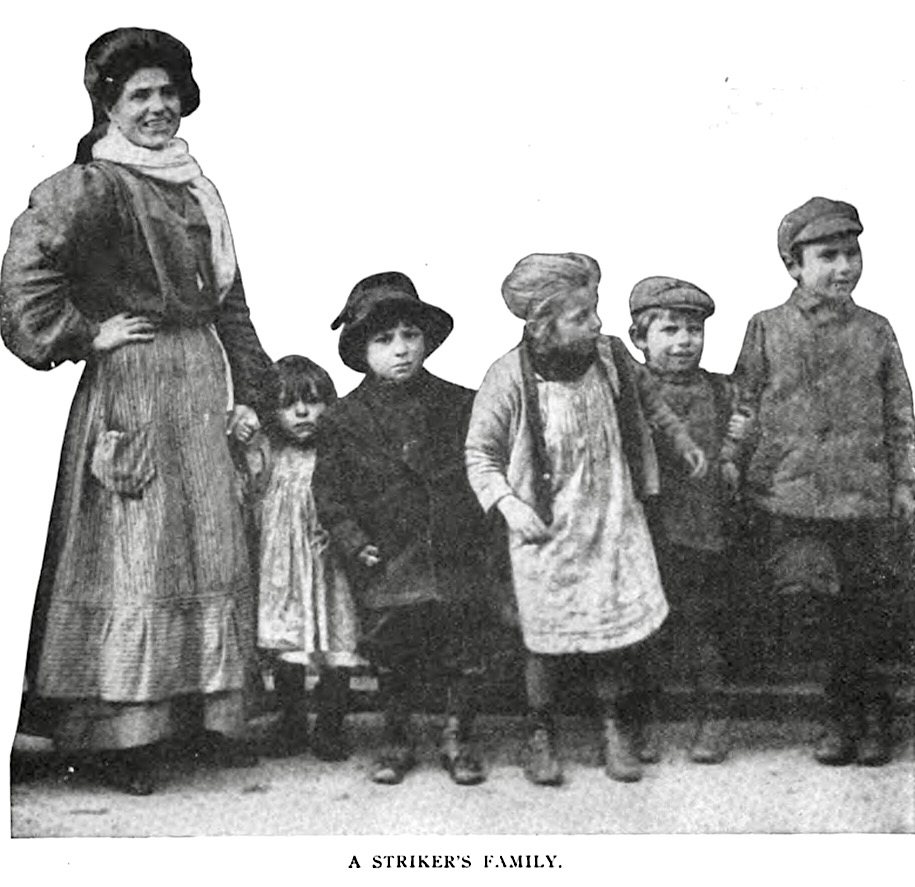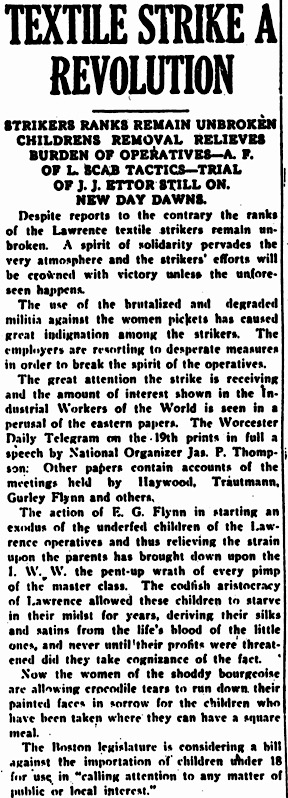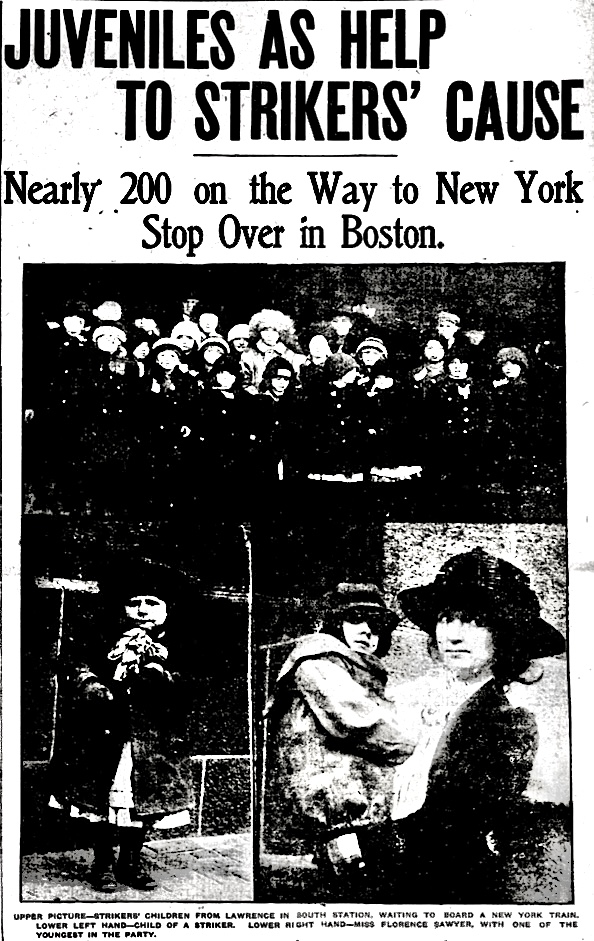 —————
—————
Hellraisers Journal – Saturday April 6, 1912
Lawrence Textile Strikers Win Great Victory with I. W. W., Part IV of IV
From the International Socialist Review of April 1912:
ONE BIG UNION WINS
By LESLIE H. MARCY and FREDERICK SUMNER BOYD
In the eighth week of the strike the bosses made an offer of five per cent wage increase. The A. F. of L. scabs accepted it and went back. The I.W. W. strikers turned it down flat. The offer was made on a Thursday, and it was hoped that thousands of strikers would break ranks and stampede to the mills on the following Monday. When the mills opened they had actually fewer scabs, and looked out on a picket line numbering upwards of twenty thousand.
At the end of the following week the bosses discovered they meant an average increase of seven, and later seven and a half per cent, and that they would amend the premium system, paying fortnightly instead of by the month as had been the practice, resulting in the loss to a large part of the workers of the entire premium. Again on the following Monday the mills had still fewer scabs, and the picket line was stronger than ever.
When the Committee of Ten left for Boston on March 11th, for the fourth and final round with the bosses, every one realized that the crisis had been reached. Led by the indomitable Riley the Committee forced the mill owners to yield point by point until the final surrender was signed by the American Woolen Company.
The Committee reported at ten o’clock at Franco-Belgian Hall the next day. The headquarters were packed and hundreds stood on the outside. Words are weak when it comes to describing the scenes which took place when the full significance of the report became known. For the workers, united in battle for the first time in the history of Lawrence, had won. The mill owners had surrendered—completely surrendered.
A great silence fell upon the gathering when Haywood arose and announced that he would make the report for the sub-committee in the temporary absence of Chairman Riley. He began by stating that tomorrow each individual striker would have a voice in deciding whether the offers made should be accepted. He said:
Report of Committee.
The committee of 10 reported in brief that the workers will receive a 5 per cent increase for the higher paid departments and 25 per cent for the lower paid departments. There will be time and a quarter overtime and the premium system has been modified so that its worst features are eliminated.
Your strike committee has indorsed this report and has selected a committee to see all the other mill owners who will be asked to meet the wage schedule offered by the American Woolen Company. In the event that the other mills do not accede to the demands, the strike on those mills will be enforced.
You have won a victory for over 250,000 other textile workers, which means an aggregate of many millions of dollars each year for the working class in New England. Now if you hope to hold what you have gained you must maintain and uphold the Industrial Workers of the World, which means yourselves.

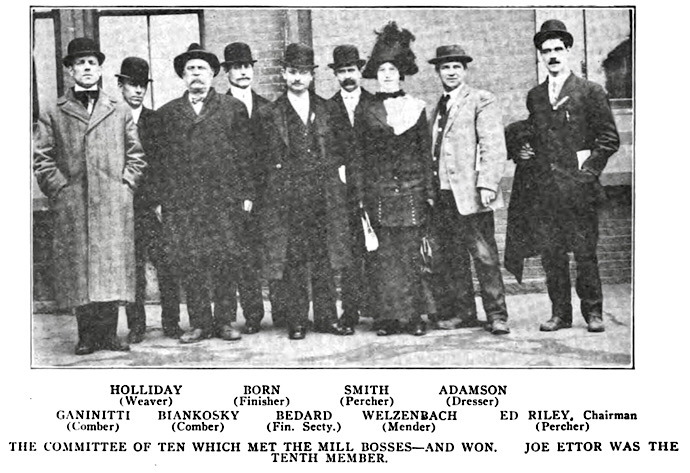
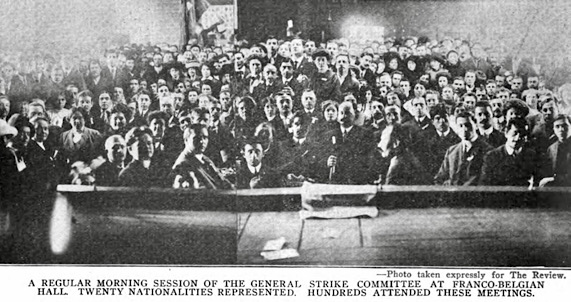
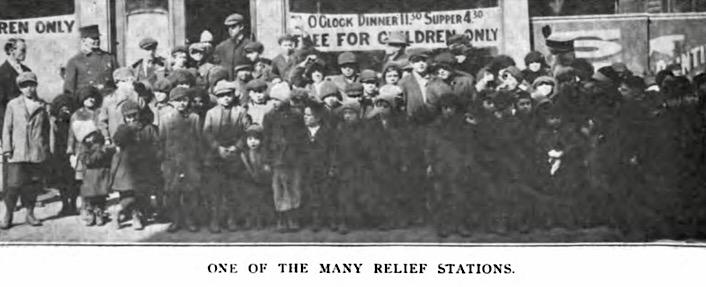
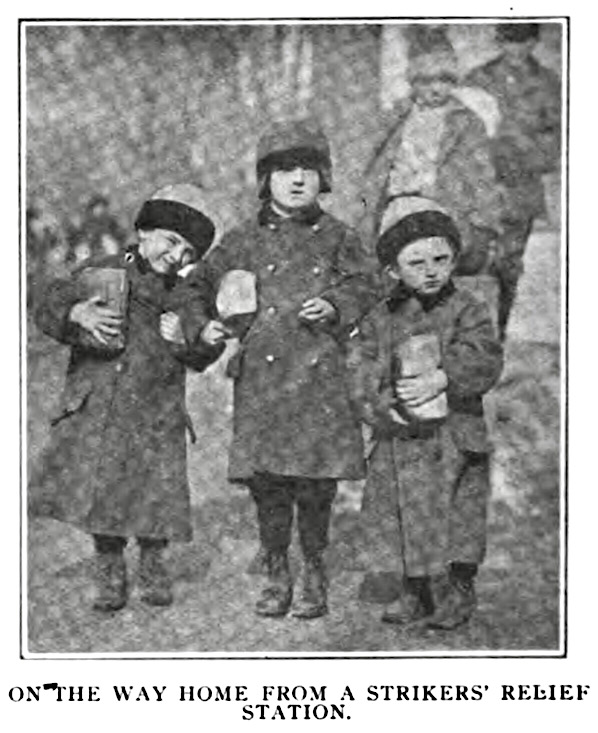
 —————
—————